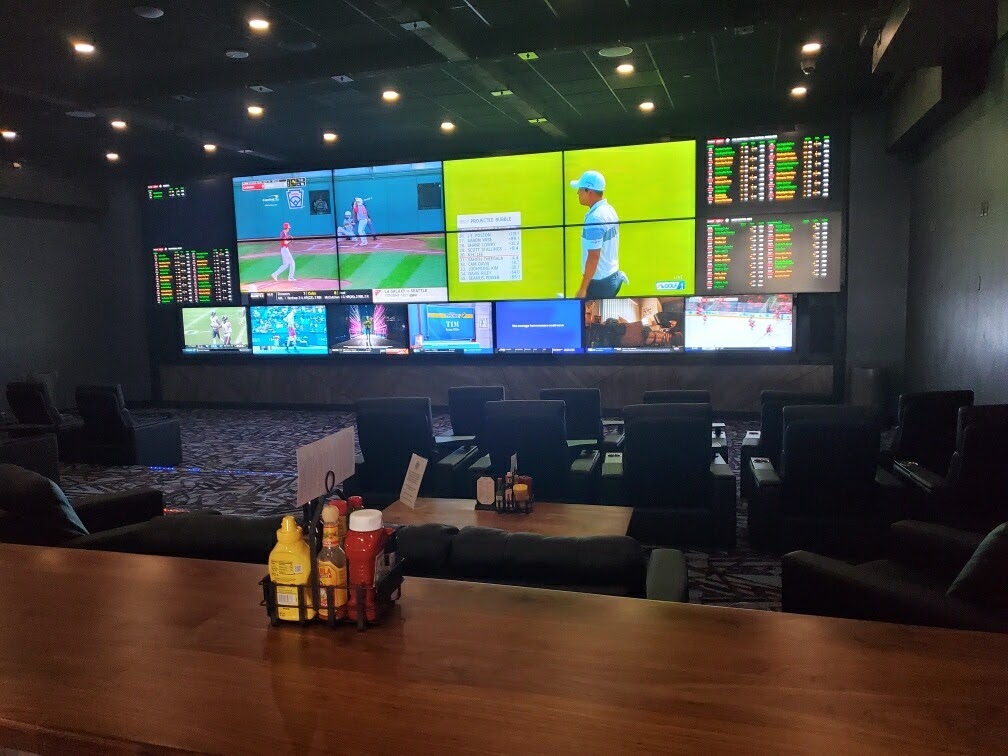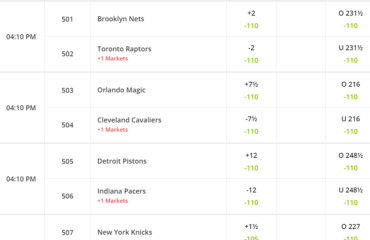In November 2020, South Dakota voters affirmed their wishes to legalize sports betting in the state. It won by a 58-42 margin. The constitutional amendment permitted the legislature to write regulations to allow Deadwood casinos to accept bets on sports.
Many voters assumed this also meant that mobile betting was part of the deal. While there were state lawmakers who wanted that to happen, Governor Kristi Noem opposed allowing South Dakotans that freedom.
The South Dakota Legislature was only able to pass regulations to permit betting on the property of Deadwood casinos. This turned out to be a mistake in terms of the new industry’s success.
South Dakota is in a distant last place in every sports betting category
Sports betting is legal in 38 states. Of those, online betting is permitted in 28 with two more going online in 2024.
Of the states that report sportsbook revenue, South Dakota comes in dead last in all categories. This includes the handle, total win, revenue per capita, and taxes generated. The reason for this is that Deadwood is an hour from any population base. That is Rapid City, which has about 150,000 residents in its metro area.
Deadwood’s population is only 1200 people. The entire county only has 26,000 residents.
Most of the remaining South Dakota population is in East River. This means it is east of the Missouri River. Residents on that side of the state have options beyond Deadwood. There are a couple of reservations with sports betting in East River. Iowa has mobile statewide betting.
Neither pay taxes to South Dakota. Neither is as convenient as mobile betting.
Governor Noem opposes gambling expansion
Governor Noem opposes expanding gambling in South Dakota. That is an interesting position for the governor of a state that is reliant upon gambling for tax revenue.
In fiscal year 2022, the South Dakota Video Lottery generated $365 million in revenue. That money is divided evenly between the state and machine operators. Deadwood is the state’s only commercial casino jurisdiction. South Dakota receives a small fraction of that gaming revenue in its tax rolls. It is around $1 million per year. However, mobile sports betting taxes could be structured differently.
Gaming revenue taxes were almost 10 percent of the entire amount raised by the South Dakota government in fiscal year 2022. Only sales taxes generated more revenue.
The ship has long sailed on South Dakota gambling. Four separate referendums over the years on video lottery all went on the side of keeping it. Every Deadwood ballot initiative won each time. This includes the constitutional amendment that created Deadwood casinos, two that increased its bet limits, one that added craps, roulette, and keno, and the sports betting one.
None of this swayed Governor Noem. She has no interest in helping Deadwood and its surrounding area create more jobs and raise more tax revenue to preserve the city’s historical places, where most gaming taxes generated there go.
Wyoming is the best sports betting comparison to South Dakota
Wyoming has the smallest population of any state. Its footprint is massive with long drives between major cities. Wyoming passed legal online sports betting, which launched in September 2021. This was the same time Deadwood retail sportsbooks opened in South Dakota.
Wyoming has about 580,000 residents. South Dakota’s has about 900,000. South Dakota’s population is about 55 percent larger than Wyoming’s population.
In fiscal year 2022, Deadwood booked $6.1 million in bets. The town’s sportsbooks won $480,000. This generated about $43,000 in tax revenue. On a per-resident basis, South Dakota generated about $7 in handle, $0.53 in revenue, and less than a nickel in taxes.
In fiscal year 2022, Wyoming booked $144.5 million in online sports bets. The gross gaming win was $14.8 million. South Dakota, at its nine percent tax rate, would have generated $1.3 million.
On a per-resident basis, Wyoming generated $249 in handle, $26 in gross gaming win, and $2.24 in taxes. When using Wyoming’s per-resident numbers with South Dakota’s population, it translates into $224 million in bets, $23.4 million in gross gaming win, and $2 million in taxes generated.
Based on these numbers, Wyoming’s sports betting industry is 36 times more successful than Deadwood’s is on handle, and 49 times more successful on gross gaming win and taxes generated.
South Dakota’s loss is Iowa’s gain
Iowa is the biggest winner in Governor Noem’s opposition to online sports betting in South Dakota. About half of South Dakota’s population lives within a short drive of Iowa. That makes it easy for Sioux Falls and North Sioux City residents, among many other cities, to make sports bets in a different state. That takes jobs that could stay in South Dakota and creates them in Iowa instead. That does not benefit South Dakotans.
There were attempts in 2022 to put the mobile betting issue on the ballot. However, it failed in the legislature. Governor Noem’s opposition surely played a huge part.
South Dakota already has legal online gambling
To say that online sports betting is a gambling expansion for South Dakota is a stretch. It is already legal to bet on dog and horse races online and on mobile apps in South Dakota. All major off-track betting companies accept players from the state.
Adding legal sports betting to a product that already exists is not much of an expansion. There is a great argument that sports betting is better for residents as the house edge on horse racing bets is at least four times more than point spread, total, or moneyline bets on a football game or similar event. Exotic bets like parlays have about the same house advantage, sometimes lower, than pari-mutuel betting on greyhounds and horses.
The Mustang Sally’s situation wouldn’t have happened with mobile betting
In 2022, Mustang Sally’s lost its gaming license for proxy betting. The owner had an employee place sports bets on the property’s kiosks for him so he did not need to go to the business in person. Proxy betting is illegal in South Dakota. This was discovered by gaming regulators. Mustang Sally’s lost their gaming license over this.
This cost the business more than its sportsbook kiosks. The 30 or so slot machines on the premises were removed.
There is no excuse for breaking the law so flagrantly. It was an embarrassment to Deadwood gaming. However, if mobile betting was legal in South Dakota, the situation that created the temptation would have been avoided.
Deadwood was the pioneer of casino expansion
Deadwood was the third jurisdiction for legalized casinos in the United States. Nevada legalized gambling in the 1930s. New Jersey did it in the 1970s. South Dakota was next in 1989. Within a few years, nearly every state along the Missouri and Mississippi Rivers had casino riverboats.
Sports betting is the opposite. While other states reap the rewards of mobile sports betting taxes and jobs, South Dakota gets left behind in a state that advertises that it’s known for its freedom.




